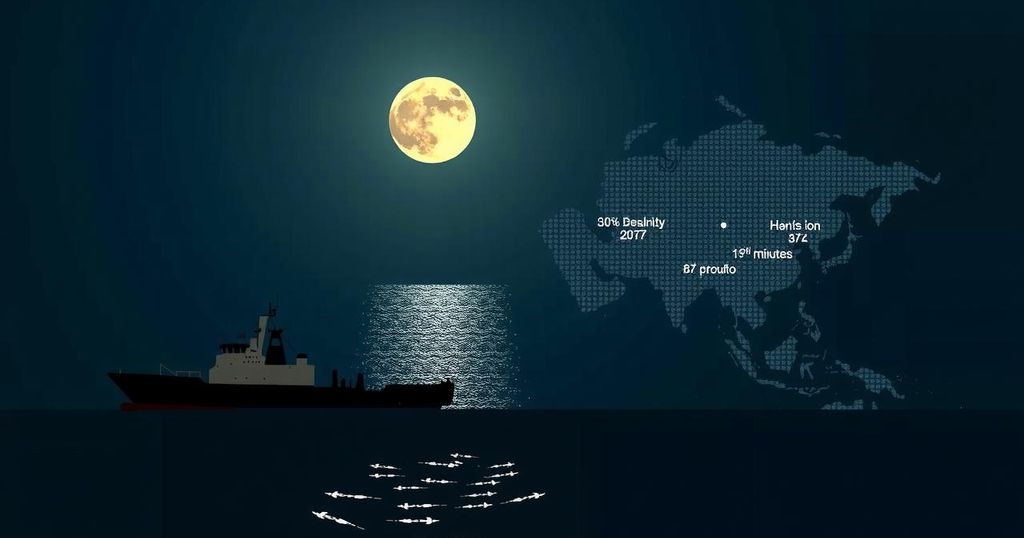60 Minutes Exposes Rising Tensions in the South China Sea Amid International Incident
Summary
The Season Premiere of 60 Minutes captures an international incident when the Philippine Coast Guard’s vessel, Cape Engaño, was rammed by a Chinese ship while documenting rising tensions in the South China Sea. Correspondent Cecilia Vega and the crew experienced first-hand the intimidation tactics employed by China, raising concerns over regional security and sovereignty.
The latest installment of 60 Minutes, featuring correspondent Cecilia Vega, documents an unexpected international incident that unfolded while the team aimed to cover escalating tensions between China and the Philippines in the South China Sea. While traveling aboard the Philippine Coast Guard vessel, Cape Engaño, to Sabina Shoal—a strategic atoll located 93 miles from Palawan—the crew encountered a shocking scenario when the ship was rammed by a Chinese vessel in the early hours of the morning. Upon hearing a loud bang and alarms at approximately 4 a.m., the team was alerted to the serious situation at hand. The Philippine crew instructed them to remain calm and stay in their cabins while they assessed potential outcomes of the incident. “Are we taking on water? Are we going to sink out here in the middle of the South China Sea?” recalled producer Jacqueline Williams, highlighting the anxiety among the crew as they wondered whether Chinese sailors would attempt to board their vessel. In a proactive measure, the team secured their passports and footage for evidence, anticipating the possibility of their recordings being compromised. After assessing the damages, they noticed a substantial hole in the hull and the fact that numerous Chinese ships surrounded them, effectively jamming their communication systems. As tensions flared, the crew aboard the Cape Engaño found themselves unable to continue the vital resupply mission, marking yet another chapter in the ongoing skirmishes between the two nations over territorial disputes. This particular incident illustrates the continued aggression exercised by Chinese forces against Philippine maritime vessels, which anthropologist Levin Teich expressed has escalated significantly since an international tribunal ruled in favor of the Philippines in 2016, defining its exclusive economic zone in the contested area. In response, China has denied the legitimacy of the tribunal’s decision and has maintained its assertions of sovereignty over the majority of the region. Following the ramming incident, China attempted to shift blame onto the Philippines, circulating a video that alleged Filipino ships had instigated the altercation. Producer Andy Court critiqued the absurdity of this narrative, emphasizing the sheer improbability of the Philippines ramming a larger vessel. Correspondent Cecilia Vega underscored the gravity of the situation, stating, “The intimidation is very real when you see it up close,” affirming the urgent need for increased global awareness of the precarious realities faced by Filipinos in these maritime encounters.
The South China Sea is a region marked by complex territorial disputes, where China claims extensive rights, conflicting with the sovereignty of neighboring countries, notably the Philippines. The South China Sea, which undergirds significant global trade, has witnessed various skirmishes exacerbated by China’s assertive maritime strategies, including aggressive maneuvers against Philippine vessels carrying out routine patrols and supply missions. An international tribunal in The Hague ruled in 2016 to reaffirm the Philippines’ rights to a designated exclusive economic zone, a claim China continues to contest. The ongoing tensions have prompted a series of confrontations at sea that have heightened geopolitical anxieties.
The incident observed by 60 Minutes serves as a stark reminder of the escalating tensions in the South China Sea, with the Philippines finding itself increasingly vulnerable to China’s aggressive actions. The incident reflects not only the fragility of regional stability but also the critical need for international attention and potential diplomatic resolutions to de-escalate ongoing maritime conflicts. The ramming of the Cape Engaño and the subsequent narratives surrounding it highlight the complexities of territorial disputes and the pressing need for a more profound global engagement in these matters.
Original Source: www.cbsnews.com








Post Comment